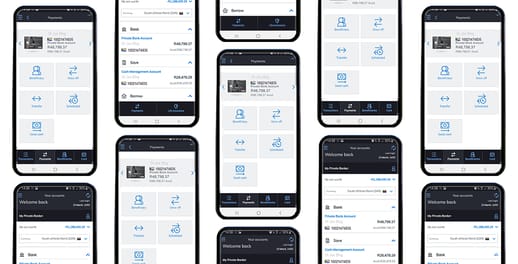It’s worth looking at how an unforeseen event like Covid-19 can shape short-term currency movements, even as we try to unpack the medium to longer-term driving factors.
The Covid-19 global pandemic is a good example of an event severely affecting global economic sentiment. In the early stages, global investors sold emerging market currencies and bonds in favour of safe havens like gold, the Japanese yen, and the Swiss franc, as respective countries embarked on rigorous economic lockdowns to curb the spread of the virus.
Sentiment has started to improve, however, driven by possible signs of hope for a Covid-19 vaccine, together with the economic benefits of countries easing lockdown restrictions in response to slowing rates of new global infections.
Concerns remain, however, about whether this upbeat market mood can sustain itself given the potential risk of a second wave.
Together with geopolitics (US-China and UK-EU trade discussions), the environment in which we operate can determine global currency sentiment over the short term.
To get a handle on this array of sentiment-driving factors, we need to look at the local and external factors.
On the one side is a long list of local economic and fiscal concerns. Sluggish economic growth is exacerbated by a potential decline in government revenue collections and a growing budget deficit as the government struggles to fund Eskom and other state-owned enterprises. Market participants will have been looking towards economic data releases, the revised Budget Speech together with ratings agencies’ (Moody’s, S&P, and Fitch) outlook on the SA economy as an economic health check.
On the other side, very low global interest rates have created an appetite among international investors for higher yields in emerging markets, among which South Africa leads the pack. Should this differential persist, it creates an environment for further inflows into South African assets, which would support the rand.
No longer a one-way bet
The net result is that the rand is a volatile currency, characterised by sharp moves in either direction. The rand is no longer a simple ‘one-way bet’.
This can make things difficult if you find yourself directly exposed to exchange rate risk, particularly if you are looking to externalise your money (see below). This makes it a complex environment to navigate.
How to get started
Current Reserve Bank legislation allows you to use your South African Reserve Bank (SARB) Single Discretionary (R1 million) and Foreign Investment (R10 million) allowances in each calendar year.
A Private Client Forex Dealer, available via your Investec Private Banker, can help to assist with your foreign exchange requirements. For example, your cross-border requirements may include:
- Foreign long-term investments
- Offshore property or vehicle purchases (or servicing the payments on these)
- Starting a business in a foreign country
- Education for children studying abroad
Your Private Client Forex Dealer has direct access to the trading floor, economists, strategists and specialists who pride themselves on staying up-to-date on current market trends. Our specialists can also help you with the mechanics and administration of moving your money offshore, for example through Investec’s SA Foreign Currency Account or UK Private bank account.
Please contact your Private Banker for more information.




